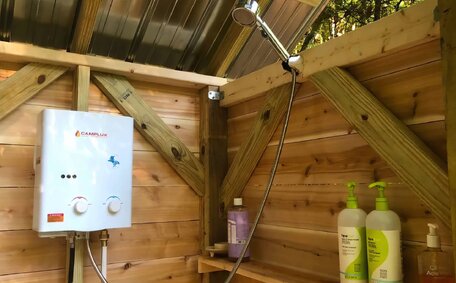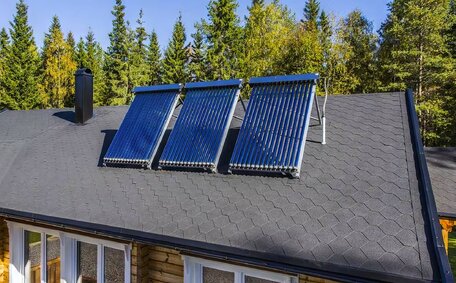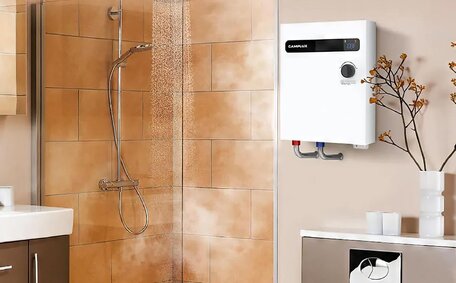Introduction to Pipe Relining in Cold Weather
As winter approaches in Cranebrook, Sydney, many homeowners start to worry about how dropping temperatures may affect their plumbing. The effects cold weather can have on your plumbing system can exacerbate plumbing problems such as frozen or bursting pipes, and can also impede essential maintenance tasks like pipe relining.
At Cranebrook Plumbing, your local team of specialists, we excel in all realms of plumbing, embracing pipe relining. Pipe relining is a trenchless method of restoring old pipes without the need for excavation.
Cold temperatures can increase the brittleness of pipe materials, with even minor cracks potentially leading to leakage, floods, and significant damage.
PVC, clay, and concrete pipes can all likely freeze and become vulnerable to cracking as temperatures dip below freezing during the colder months of the year. Preventative actions can help prevent water supply pipe lining materials from freezing before they cure.
Proper planning and a steady pipe lining supply empower our team to persist with winter plumbing activities, securing your home with tasks like servicing your hot water system throughout the season. By warming the pipe environment and utilising faster-curing resins, we ensure maintenance and effectiveness even during cold weather. With our local experience and advanced technology, Cranebrook Plumbing was very efficient in ensuring lining jobs revitalise your system without interruption from the cold weather.
How Low Temperatures Affect Pipe Materials
Consider the following insights tailored to New South Wales’s climate, where cold weather can drastically affect plumbing materials. When the mercury drops, many pipe materials become more brittle and potentially affect your plumbing, necessitating immediate pipe repair. Let’s look at how some of the most popular piping is affected by cold weather:
Copper Pipes: Commonly used in plumbing, copper pipes are affected by temperature changes, leading to potential leaks due to expansion and contraction. Lower temperatures also increase their brittleness, enhancing the likelihood of cracking.
Temperature shifts can cause joint issues and fractures in your plumbing pipes, particularly PVC, which can shatter if any trapped water freezes and expands.
Cast Iron Pipes: Renowned for durability yet inflexible, cast iron pipes are particularly vulnerable to cracking in cold temperatures and can be severely compromised by constant thermal changes.
Colder climates can compromise the curing and sealing performance of epoxy resins employed in pipe relining.
Preventing Freezing and Bursting of Pipes
The havoc from freezing temperatures includes the dreaded burst pipe, alongside other significant pipe problems like leaks and costly water damage. Here are few ways for your home business to implement preventative measures, safeguarding pipes from the perils of freezing and bursting during Sydney’s winter season:
Insulate Pipes - Exposed pipes in unheated areas like crawl spaces, attics, and garages are likely to freeze. We highly recommend insulating at-risk water lines to shield your pipes from icy temperatures and prevent complications.
Seal Air Leaks - Drafts from loose windows, doors, and openings can drop internal pipe temperatures. Employ caulk and weather-stripping to seal any external air gaps and protect your internal piping.
Drain Exterior Faucets - Detach all hoses, and make certain that exterior taps and the inlet pipe are completely drained of water. Make sure to consider installing taps that you can easily turn off, enhancing their functionality for effective sewer repair and to prevent freezing.
Maintain Heat - Maintain consistent temperatures by setting thermostats to at least 15°C, even when absent from the premises. You should also leave cabinet doors open to let warm air circulate around your pipes, flushing out your plumbing system while providing pressure relief and protection against the cold.
Drip Faucets - During extreme cold, let your faucets slowly drip to keep water moving through the pipes, preventing freezing.
Insulate Walls - Uninsulated exterior walls can radiate cold temperatures, which can accelerate freezing risks. Insulating walls helps moderate pipe temperatures.
Remove Snow - Heavy snow buildup can freeze pipes and affect your sewer system, including the function of your sump pit and sump pump. Ensure to regularly clear snow ice accumulation from outdoor drains and areas near exterior vents and the edges of your roof.
Regular drain cleaning is essential; avoid pouring fats, oil, and grease down your drains as these can clog your system, with tree roots and other obstructions adhering to your sewer line and impeding your garbage disposal. With customised care, Cranebrook Plumbing assists in maintaining homes and businesses, preventing pipe freezing in the colder months.
Adapting Epoxy Curing Techniques for Colder Temperatures
One of the main challenges our team faces during cold weather pipe relining in Cranebrook is ensuring the epoxy resin cures properly. Epoxy resins require certain temperature ranges to fully cure and bond correctly. If applied below 50°F (10°C), epoxy may not properly harden or develop full strength.
Incorporating temperature control methodologies into your winter pipe relining process, we apply various techniques:
- Heat the pipe environment using space heaters or hot air blowers before and during application to maintain warm temperatures.
- Select fast-curing epoxy resins designed to cure at colder temperatures.
- Wrap your relined pipes in insulating materials to prevent heat loss during curing.
- Speed up curing using hot water techniques, which involves circulating water heated to approximately 49°C through the pipes as the resin sets.
- Use supplemental heat sources like steam or electric heating elements inside the lined pipe.
With proper planning and preparation, Cranebrook Plumbing can keep pipe relining projects on track even when temperatures drop below freezing. Our experienced team, adept at managing problems your plumbing might face, continues delivering seamless solutions throughout Sydney’s winter months.
Freezing temperatures can cause water inside pipes to freeze, expanding and rupturing the pipe. To avoid this, its crucial to keep water moving through your plumbing system during cold weather.
It’s critical to maintain regular plumbing use to prevent disruptions during winter. Regularly running water down your drain sewer, flushing toilets, showering, doing laundry, and dishwashing can help maintain flow and use your plumbing regularly.
If youre away from home, maintain normal water use by installing timers on faucets or toilets. Reach out to your plumber or a trusted individual to periodically check your plumbing and run water in your absence. Monitor indoor temperatures and avoid turning down thermostats too low.
Troubleshooting Common Cold Weather Pipe Relining Issues
Pipe relining projects face multiple challenges when temperatures fall below freezing. As experts in lining pipe solutions within Sydney, Cranebrook Plumbing adeptly addresses cold weather challenges associated with pipe relining:
- Slow Curing - Epoxy resins cure slower in cold conditions. The process adeptly managed plumbing issues using fast-curing epoxies designed for low temperatures, supplemented with heat sources.
- Poor Bonding - Lack of heat can prevent epoxy from properly bonding to the old sewer pipe. We ensure the pipe environments are kept above 10°C.
- Frozen Pipes - Any remaining water can freeze, rupturing damaged pipes before relining. We drain and dry your sewer lines thoroughly beforehand.
- Embrittlement - Pipe materials like PVC and ABS get extra brittle in cold. Care is taken not to stress or crack them during lining.
- Equipment Failure - Bladder inflation devices and pumps can malfunction in freezing temps. We use cold-weather machines.
Our proactive approaches effectively mitigate plumbing issues during Sydney winters, keeping the cost of pipe relining affordable.
For 24/7 cold weather plumbing troubleshooting, call Cranebrook Plumbing at 1300 349 338 or email us to schedule pipe relining service throughout the Sydney area.
Here are Cranebrook Plumbing’s top tips for ensuring your pipe relining project goes smoothly this winter:
- Select fast-curing epoxy resins suitable for CIPP lining, even in low temperature applications.
- Utilise space heaters and similar supplemental heating devices before and throughout the relining process.
- Circulate warm water through pipes while epoxy cures to speed up hardening.
- Plan projects for warmer intervals and steer clear of periods of extreme cold.
- Allow extra time for epoxy to fully cure before putting pipes back into service.
- Take extra care handling pipe materials that become brittle in cold temps.
- Use cold-weather relining equipment designed not to malfunction in freezing conditions.
With over 10 years of local experience, Cranebrook Plumbing has the expertise to tailor the pipe relining process for winter conditions. Contact us today at [email protected] or 1300 349 338 to learn more about pipe relining your home or business this winter.
Here are Cranebrook Plumbing’s top tips for ensuring your pipe relining project goes smoothly this winter:






